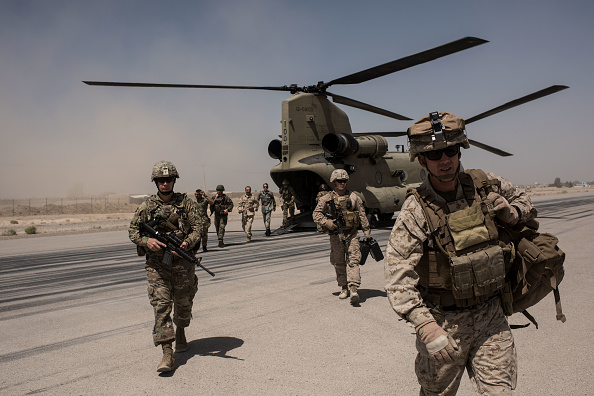As the war in Afghanistan dragged on, becoming the longest in U.S. history, it faded to the back of the American mind and stayed there. When we did reckon with the conflict, it was as if we were learning to live with a minor medical ailment. We really ought to deal with that…eventually.
In 2010, nine years after America jingoistically – and enthusiastically – launched the war on terror, just 4 percent of the nation’s news coverage in major outlets focused on Afghanistan, according to a study by the Project for Excellence in Journalism. That same year, 3,366 U.S. soldiers stationed in Afghanistan were wounded by IEDs.
By the 2020 election, the catch-all “foreign policy” category was just the sixth most important topic to American voters, according to public polling. Our attention was more focused on Supreme Court appointments.
The war became so removed from our day-to-day consciousness, that it even escaped America’s ubiquitous partisan divide; Joe Biden and Donald Trump expressed similar visions for the future of the conflict during the most recent presidential campaign. Namely – let’s get out of it, fast.
This past week, that happened. The heart-breaking images and deflating reports out of Kabul have catapulted the war back to the center of the news cycle.
Fox News has seen a ratings boon. For a network dependent on an audience that loves to hate Democrats in general and Joe Biden in particular, the botched evacuation of U.S. diplomats and Afghans who aided in the war effort was a gift on a silver platter disguised as a humanitarian tragedy. Of course, criticisms levied by Fox News personalities – even legitimate criticisms – don’t carry much weight in the mainstream. The network has undermined its credibility by consistent turning mole hills into mountains and mountains into mole hills. There was a period last year where Fox viewers got the sense that Nancy Pelosi’s unmasked hair cut was a bigger scandal than Trump’s maddening flirtation with anti-science hokum.
But even down-the-middle and left-leaning outlets have adopted a tough tone with Biden as Americans process the return of the Taliban. In a recent interview, George Stephanopoulos, the former Democratic operative turned ABC News anchor, pressed Biden on the gap between his previous predictions on Afghanistan and the much bleaker reality.
Biden deserves the tough questions – and a lot of criticism, too. The video of desperate Afghans clinging to the side of American airplanes fleeing the country not only brings to mind America’s shameful exit from Vietnam, it also embodies the incompetence of the Trump administration. Wasn’t Biden’s experienced team supposed to avoid messes like this? Yes, war is dynamic and messy, but surely someone in America’s vast national security apparatus could have seen this coming and prepared for it.
Yet, the non-military public bears some of the blame, too. Our politicians respond to the things we care about. If voters think it’s a priority, so will the officeholders who control the levers of power.
In The Atlantic, Tom Nichols explains this was never the case:
In post-2001 America, it became fashionable to speak of “war weariness,” but citizens who were not in the military or part of a military family or community did not have to endure even minor inconveniences, much less shoulder major burdens such as a draft, a war tax, or resource shortages. The soldiers who served overseas in those first years of major operations soon felt forgotten. “America’s not at war” was a common refrain among the troops. “We’re at war. America’s at the mall.”
Our collective indifference put Afghanistan on the back burner. By the time we checked in on it, all we could do is tsk-tsk at its sorry state. Missteps by four presidential administration – half Republican, half Democratic – give the polarized public room to finger point at their preferred scapegoat.
Yet, there’s signs that even that type of partisan accountability is fading. As CNN’s Brian Stelter points out, a human interest story on a COVID-19 death was the most read story on The Washington Post’s website yesterday. An update on booster shots led the Wall Street Journal. CNN has resumed its incremental yet near-constant coverage of the fight over mask mandates in schools.
In the cynical world of Washington, this diminishing attention is good news for Biden. By the time voters get to weigh in on his performance, the embarrassments of the last week will likely be buried under other concerns.
But Americans ought to be clear-eyed about what happened: we tuned in for the pilot episode of the war, the initial shock and awe, then we forgot about it until the finale. If we were a little more engaged, there could have been a more satisfying ending.



